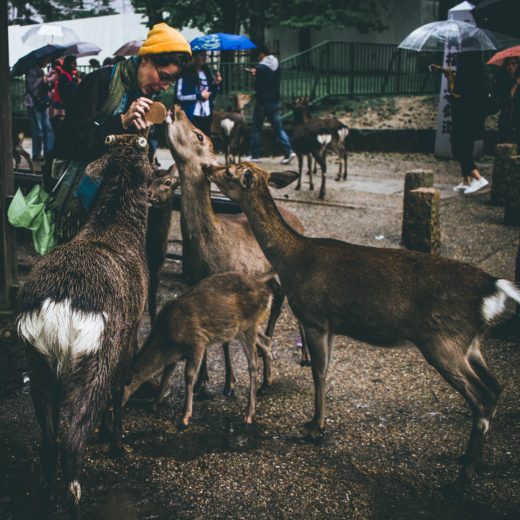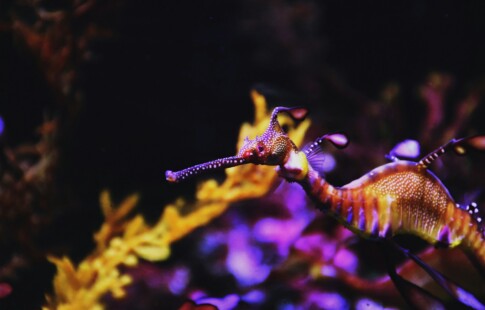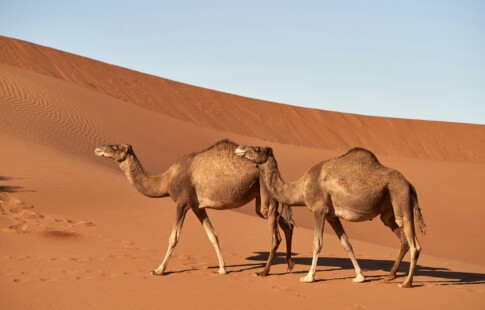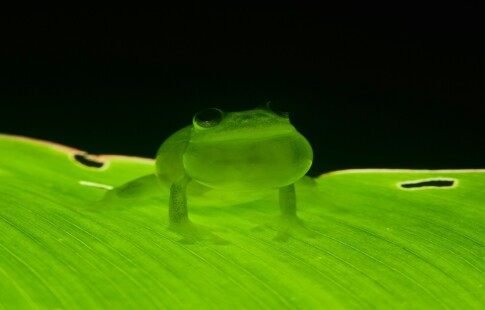
5 Empowering Conservation Jobs
We are reader-supported. When you buy through links on our site, we may earn affiliate commission.
Conservation jobs are challenging. They can involve a lot of unusual work and can include travel, manual labor and working in all kinds of elements. You might expect to go in for an eight-hour day and instead work 12, or get called in for an emergency in the middle of the night. You can’t do that kind of job if you don’t care about it. If you do have a passion for the work, however, these empowering conservation jobs could be the most rewarding career you’ll ever have.
1. Zookeeper or Zoo Director
Zoos offer several types of empowering conservation jobs. Some people consider zoos to be inhumane or not in an animal’s best interest. In some cases, they’re right. Small, roadside zoos and traveling circuses often do not provide decent living conditions for the animals. However, large, nationally known zoos do some of the best conservation work around — both for their residents and for their wild counterparts.
There’s an option for zoos and even some wildlife sanctuaries to earn accreditation from the American Zoological Association. This official recognition means, in addition to meeting state and federal animal welfare laws, the organization goes above and beyond to make sure their animals get the best care possible. Part of that accreditation requires the zoos to work on conservation, donating money and research to protecting wild animals and their habitats.
Zookeepers themselves don’t make a lucrative paycheck, but their work is anything but boring. They act as both animal keeper and educator, teaching the public all about the species they work with. This job does come with some risks since you have to move potentially dangerous animals around and make sure everyone is healthy, safe and clean. A zoo director earns significantly more, but they miss out on the direct animal interactions.
2. Marine Biologist
If you love the ocean and fieldwork and have a background in science, marine biology might be the job for you! The field is incredibly competitive, so you should plan to major in it as an undergrad because getting into graduate programs is so difficult. For this job, you’ll need both a degree and a scuba certification. Getting there might be a challenge, but you can spend part of your job on a boat, diving with sharks and dolphins! Plus, you can help set up marine conservation efforts known as Hope Spots, to help the ocean recover from over-fishing and pollution.
3. Park Ranger
A park ranger is an excellent job for someone who likes to be out and about. You shouldn’t be afraid of the weather, and you should be able to keep yourself in good shape! While this job does involve some paperwork, it’s a lot more outdoorsy than others. Most of their job is to patrol national parks, including such beautiful areas as Yellowstone or the Grand Canyon.
While these jobs are exciting, they can be dangerous. Park rangers are expected to participate in search and rescue missions, give tours and answer questions, while also enforcing rules and keeping people safe. This job might be in danger, though. As we move through both a politically and environmentally changing environment, some of our national parks are facing budget cuts. Some of those may eliminate jobs in the almost $6.5 billion industry, which would make proper patrols more difficult. Soon, all our national park rangers could be volunteers.
4. Environmental Educator
One of the best ways to protect the environment is to teach other people how to do it. That can take a lot of different forms, but having it be your full-time job is an option, too! In a position like this, you may work with adults on occasion, but you’d probably spend most of your time with kids, either at a camp or within a larger kids’ program, like the YMCA. This job is the perfect blend of conservationist and teacher. It gives you a chance to take kids who have never seen the forest before through one in an immersion trip. You can change people’s lives with one experience.
5. Wildlife Forensic Scientist
Being a forensic scientist will net you a decent living and allow you to work hard on improving conservation efforts in your area. However, it doesn’t always involve as much field work as some of the others on this list. Forensics is an excellent option for someone who loves conservation but isn’t as much of an outdoorsy type. It does require an advanced scientific degree, though.
Empowering Conservation Jobs
Getting a job in conservation can be hard. There’s a lot of competition, and you might struggle to find a place for yourself if you don’t have the right degree or background. But that doesn’t make it impossible. What most conservationists look for, more than experience or a degree, are passion and a willingness to learn. Conservation jobs aren’t for everyone. But if it is a good fit for your skill set and passions, you’ll never find another job that’s half as exciting or fulfilling.
Share on
Like what you read? Join other Environment.co readers!
Get the latest updates on our planet by subscribing to the Environment.co newsletter!
About the author

Jane Marsh
Starting from an early age, Jane Marsh loved all animals and became a budding environmentalist. Now, Jane works as the Editor-in-Chief of Environment.co where she covers topics related to climate policy, renewable energy, the food industry, and more.





